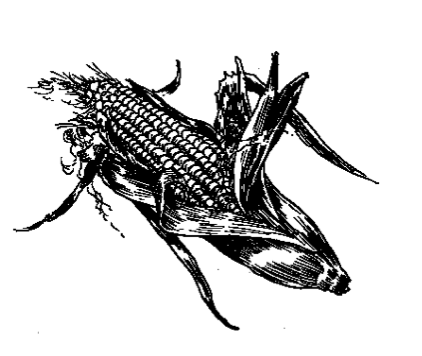1.
In America, we are taught from an early age not to talk about the things that most concern us. It is too dangerous. We might upset someone. We call this tendency modesty, but other cultures see it as caginess or avoidance. We are friendly but not open, the Europeans say, fleshy but not Rubenesque. It is this last quality that shows how immodest we really are. The ugly American is now a round American. Almost two-thirds of us are overweight, one fifth are obese, and 2 percent can barely move. How did so many Americans grow so large? After reading Fatal Harvest: The Tragedy of Industrial Agriculture, a sprawling collection of essays by sustainable-agriculture advocates, and Fat Land: How Americans Became the Fattest People in the World, by the journalist Greg Critser, I believe I have an answer. What is responsible for our nation’s expanding girth, and for the environmental destruction that has attended it, is war.
There was a poster that was popular in the early 1990s by the artist Barbara Kruger: In a thick, blunt font, it read, Your Body Is a Battleground. The poster was powerful because it brought home a stunning, perverse truth: that women’s physical selves—not their souls, or their votes, or their money—no, their actual bodies were things that the “pro-life” brigades were willing to fight for, territory they thought they could win.
You don’t hear that kind of rhetoric much anymore, but the metaphor works better than ever. Global agreements (NAFTA, GATT) and actual war (Afghanistan, Iraq) have kicked open the doors of countries that were off-limits, protected by tariffs or ideology or both. The protesters among us often say that these wars, these treaties are entered into with an eye toward oil reserves, or markets, or profits. But those words are too vague. Really, they are entered into for bodies, actual physical bodies to produce and consume a vast array of products made by a small cabal of companies. Without bodies the system wouldn’t work at all. Before bodies can want sneakers or stereos, they need food.
And so that’s where the geopolitical shenanigans start. In the 1960s Henry Kissinger formally initiated a policy of cutting food aid from African countries that sided against the U.S. in votes in the United Nations. Carter and Reagan continued the policy in places like Grenada and Nicaragua, even during famines. When aid is provided to avert starvation, it is often a pretext for expanding the market share of U.S. agribusiness.
“Many countries that were huge food aid recipients in the 1960s and 1970s from the United States are no longer getting food aid...
You have reached your article limit
Sign up for a digital subscription and continue reading all new issues, plus our entire archives, for just $1.50/month.
Already a subscriber? Sign in





